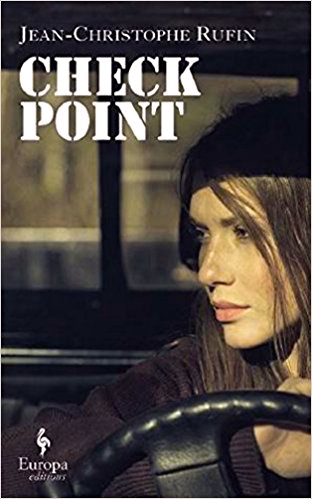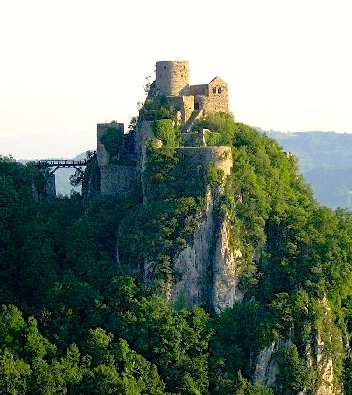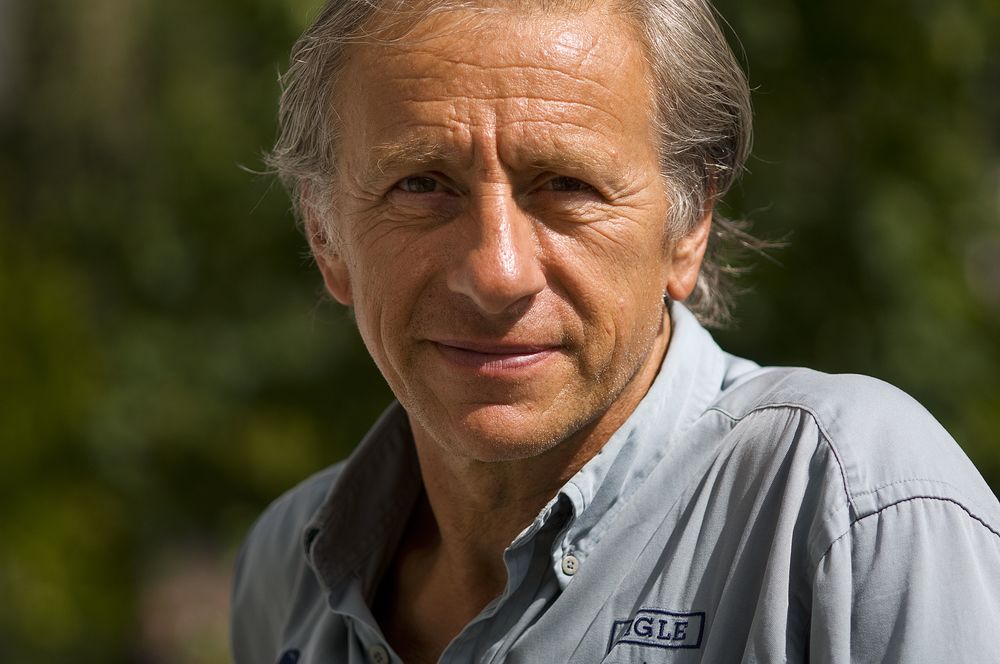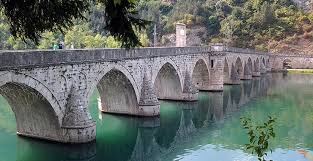“It was always an awkward moment when the two [groups of convoy drivers] met up again. Right from the start of the trip, a heavy, hostile atmosphere had reigned in the group. It was a gross understatement to say that the five members of the convoy did not get along. Things did not improve with the passing miles. Clans of convenience were formed….Maud and Lionel made one team; Alex and Marc, the two drivers in the other truck, were another. Vauthier did not hide his dislike for [all of] them.”

Written by Jean-Christophe Rufin, one of the founders of Doctors Without Borders and former president of Action Against Hunger, Checkpoint provides a new look at the whole idea of humanitarian service, in this case during the Bosnian War (1992 – 1995), which followed the breakup of Yugoslavia. The author, both a doctor and writer of popular novels, puts all his talents to use in this novel in which a team of four young people and one middle-aged man joins La Tete d’Or in Lyon, France, to deliver food, clothing, and medical supplies to people stranded without resources in the war zone. Each of the five volunteers has his/her own reason for risking all in the name of humanity, and none of them are acting purely out of altruism as they work their way through Bosnia on their way to Kakanj. There the Muslim, Croat, and Serb populations, which once got along well, have become alienated, and adjacent areas within the same community are now enemies. As the two-truck convoy heads into the Bosnian war zone, they must pass regularly through checkpoints, operated by local warlords, where “the only true subject, the ultimate motor of all behavior and all thought, was fear. You had to play along and show you took the matter seriously… [by] displaying an obvious fear of the [man in charge].”
Rufin delineates each character enough that the reader can keep the backgrounds and motivations of each one clear. The author has clearly selected and developed their differences to illustrate different aspects of the war and the people involved in it and within the aid community. Maud, the youngest, at age twenty-one, comes from a privileged family, and she studied law for two years so that she could be part of her father’s firm of notaries. She has never been in love, a fact which has made her join the group, and she has begun to think that “danger was the only way she could overcome the obstacles that kept her from love.” Lionel, the twenty-four-year-old leader of the group, has been involved in aid work for three years, and he deals with his insecurities by “smok[ing] joints from morning to night.” Marc and Alex, are both former soldiers who have already had a six-month stint in Kakanj, an area in the middle of Bosnia, where the major source of employment has been the coal mines. All energy there comes from coal, and if the mines are shut down, disaster will rule. While there previously, Alex fell in love with a woman he hopes to see on this return trip, though he fears for her and for the family. Marc, a man who follows the rules, does not even smoke cigarettes, and he is always concerned with doing what is “right.” He and Alex are on a mission that they have kept secret from the rest of the group, and they are determined to execute it. The fifth participant, Vauthier, is older, in his forties. A conscientious objector, he operates on his own. Coarse and rude, he is friendless within this group, and some think he is a “cop.”
 The first third of the novel concentrates on setting the scene, though with five main characters to describe and a complex country of divided loyalties to depict, the author depends on “telling about” the people and places instead of employing the more subtle and more literary technique of revealing information through the characters’ actions and dialogue. This creates a situation in which, except for arguments and macho competition for Maud, not much drama really happens, at first, and little tension is created. At the halfway point, however, the group splits, with two participants taking off secretly, and Vauthier becoming a more active part of the plot. He has asked French agents at UN headquarters to investigate two members of their group about a theft, and an investigation is currently under way in France. The second group then decides to chase after the two who have absconded in their truck. At this point the narrative splits between the two groups and tells the separate stories of each group with alternating points of view, with much of the ensuing action devoted to the chase, leading to a cinematic grand finale.
The first third of the novel concentrates on setting the scene, though with five main characters to describe and a complex country of divided loyalties to depict, the author depends on “telling about” the people and places instead of employing the more subtle and more literary technique of revealing information through the characters’ actions and dialogue. This creates a situation in which, except for arguments and macho competition for Maud, not much drama really happens, at first, and little tension is created. At the halfway point, however, the group splits, with two participants taking off secretly, and Vauthier becoming a more active part of the plot. He has asked French agents at UN headquarters to investigate two members of their group about a theft, and an investigation is currently under way in France. The second group then decides to chase after the two who have absconded in their truck. At this point the narrative splits between the two groups and tells the separate stories of each group with alternating points of view, with much of the ensuing action devoted to the chase, leading to a cinematic grand finale.

One of the trucks in the convoy passes “a fortress, one of those castles that had been the glory of Bosnia in the Middle Ages.” Now, “no invader would dream of going by there.”
Thematically, the novel attempts to deal with many issues, concentrating especially on the values of the individual aid workers and why each might have chosen the dangerous path of helping others in a war zone. Most are not the altruistic people the reader has always associated with such aid groups – each has his/her own reason for escaping the world in which s/he has lived. All five of the workers here are people dealing with conflicts, and as we never really see any of them getting involved in helping real people (until the final pages of the book), this lack in the book was disappointing to me. Many of the scenes are predictable, even trite, and I do not know whether the descriptions of some of the action are the responsibility of the author or of the translator. Romantic clichés and exaggeration spoil some scenes. At one point after a love scene, the male lover is sleeping, as the female removes her glasses so that “he would see her like that when he woke up: she hoped he would think she was beautiful.” She goes on to tell us what she is seeing: “His features were relaxed, revealing another person. Gone was the tense warrior he played during the day…He seemed much younger and more vulnerable, almost frightened. His expression in sleep was that of a defenseless, unloved child who is hurt and sad.”
Later after a grand finale with shootings, injuries and even death, the author once again tells about the characters’ feelings, instead of showing them, and in a particularly noticeable bit of unreality, remarks, “Then everyone suddenly relaxed and they all burst out laughing.” Despite the stylistic limitations, the novel provides many insights into the whole issue of aid programs and the people who participate. The pacing picks up after the long introductory section, with many action scenes and a conclusion that is reminiscent of a romantic film. The book would certainly make a good film, as the author clearly wants the reader to visualize what is happening, and in a film the reader would experience visually the acts and thoughts that the author so often “tells about” here in words.
Photos, in order: The author’s photo may be found on http://www.writersfestival.co.nz/
The map of the former Yugoslavia appears on https://www.lib.utexas.edu
One of the trucks in the convoy passes a fortress/castle from the Middle Ages. “Once a front line, now the place was deserted, and no invader would dream of going by there.” https://www.panoramio.com/user/1564011
The Bridge over the Drina River features in a scene in this novel: http://www.bhembassy.co.uk/


